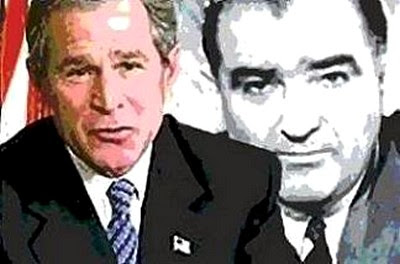 On January 26th 2012, Poland looks set to become the 9th signatory to the Anti-Counterfeiting Trade Agreement (ACTA).
On January 26th 2012, Poland looks set to become the 9th signatory to the Anti-Counterfeiting Trade Agreement (ACTA).
It is a treaty which has its genesis in the Bush administration in the USA, but it has only just been ratified by the nations involved.
As the name implies, ACTA was developed to stop imitation products being branded with established names. For example, vendors would be unable to sell cheap watches under the name Rolex or pretend that a cover artist is really Bruce Springsteen. No medicine could be relabeled to make it appear to come from a patented source.
Those owning the copyright would no longer have to rely upon national laws, in the place where the item was sold, because the individual could be prosecuted under this new trade agreement.
None of this is why activists are up in arms. The issue is the scope of the provisions made in the treaty. The term 'counterfeiting' could be used against on-line content, such as file-shared documents and other media.
Any website which relies upon user uploaded submissions would become instantly vulnerable. Once again platforms like Wikipedia, Facebook, Twitter, YouTube and Reddit would be forced to become so restricted that they would be unable to continue.
Moreover, ACTA makes provision for 'ideas' amongst the protection for intellectual copyright. If it had been current in 1591, Shakespeare could never have written Romeo and Juliet. That play borrowed heavily from Arthur Brooke's The Tragicall Historye of Romeus and Juliet, written just 30 years before. It would have been seen as an idea theft for all its widely perceived superiority.
The concern of activists is that the trade agreement will seek to criminalize creativity and freedom of information on the internet. In this regard, it shares many features with the already shelved US bills, SOPA and PIPA.


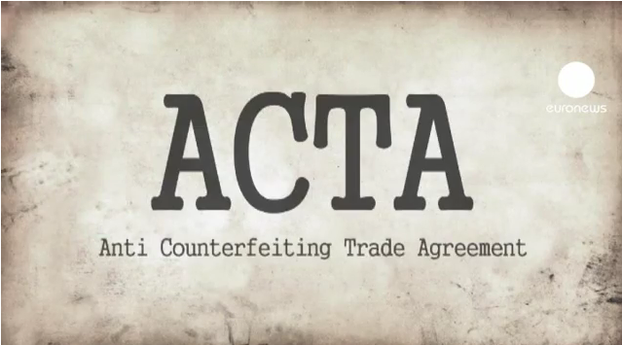
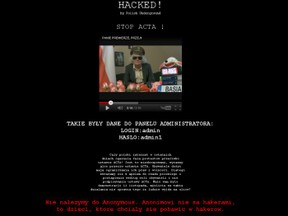



 On January 26th 2012, Poland looks set to become the 9th signatory to the Anti-Counterfeiting Trade Agreement (ACTA).
On January 26th 2012, Poland looks set to become the 9th signatory to the Anti-Counterfeiting Trade Agreement (ACTA). 


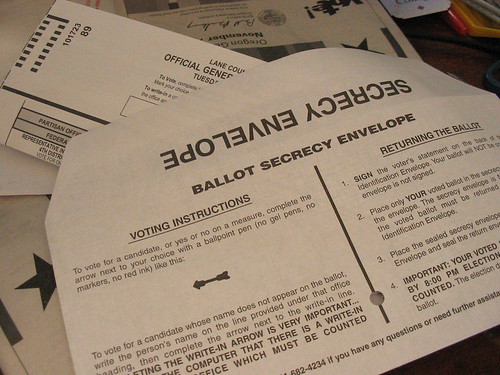 Much of the furore over ACTA has its roots in the extreme secrecy surrounding a treaty that has largely been negotiated and signed behind closed doors. The public didn't even know it existed until a document, provided by a whistle-blower, was posted on the WikiLeaks website. According to that, ACTA had been launched in October 2007.
Much of the furore over ACTA has its roots in the extreme secrecy surrounding a treaty that has largely been negotiated and signed behind closed doors. The public didn't even know it existed until a document, provided by a whistle-blower, was posted on the WikiLeaks website. According to that, ACTA had been launched in October 2007.









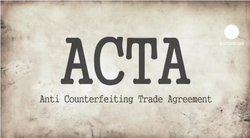

 St Tydecho's Churches in West Waleson 09/03/2014
St Tydecho's Churches in West Waleson 09/03/2014
 Goodies for an Outlander Premiere Partyon 03/06/2015
Goodies for an Outlander Premiere Partyon 03/06/2015
 Holocaust Memorial Day Interview with Rainer Höss, Grandson of Rudolf Architect of Auschwitzon 01/24/2015
Holocaust Memorial Day Interview with Rainer Höss, Grandson of Rudolf Architect of Auschwitzon 01/24/2015
 Romantic Valentine Gifts for an Outlander Fanon 01/16/2015
Romantic Valentine Gifts for an Outlander Fanon 01/16/2015

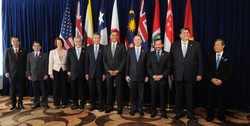
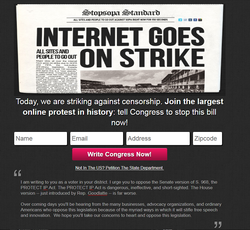
Comments
Thank you for the head's up. I didn't know that the Czech Republic was so close to signing ACTA. I was aware that the treaty had been passed by the EU, so it was only a matter of time before it spread through Europe.
I agree that awareness certainly needs to be raised. Thank you for commenting.
You've written an excellent article about ACTA. Being close to Poland, the Czechs have also been against it, though the government has agreed to the provisions. People need to be made more aware of the possible ways ACTA could be used against normal every day people.